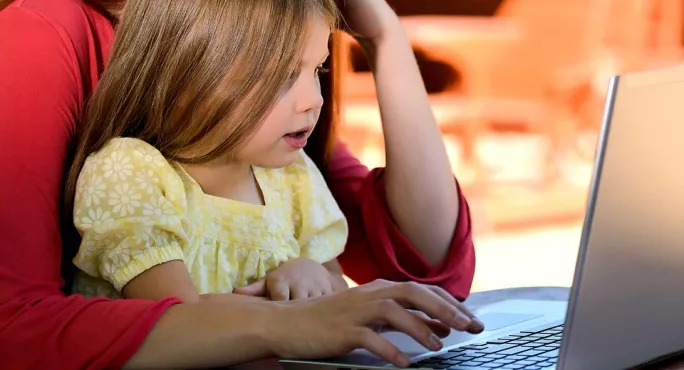- Home
- Book review: Love, Money and Parenting
Book review: Love, Money and Parenting

Love, Money, and Parenting: How economics explains the way we raise our kids
Fabrizio Zilibotti and Matthias Doepke
Princeton University Press
384pp, £24.00
ISBN: 978 0691171517
In an age of increasing pressures on schools and growing political and social divisions, a book analysing the interaction between economics and parenting styles isn’t an obvious choice to adorn the pages of Tes. Yet, many are the teachers who have said to me that becoming a parent had affected the way they taught and how they perceived their professional role. Why should that be, and what does it mean?
The link between, on one hand, our perceptions of society, the economy and how they are changing, and on the other, our expectations of children and the world they will inherit as adults, is an area that should interest all teachers. It shapes those very pressures that affect our daily practice, including those we place on ourselves. Although this book’s focus is parenting, its regular references to education shed an interesting light on our contexts.
Looking inward, the taxonomy of parenting styles that Matthias Doepke and Fabrizio Zilibotti adopt is a refreshing change from our standard traditionalist vs progressive paradigm. Classifying parents as uninvolved, permissive, authoritative or authoritarian offers a richer scale for considering our teaching styles. Is any teacher really any less than permissive, or more than authoritative? As the writers show, practices are informed by values, and it is no surprise to see those values pull apart in an age of growing inequality and higher stakes. The four-point scale offered here could refocus our dialogue on the commonalities in the centre, rather than appeals to the extremes.
Looking outside of the school gates, perhaps this book’s most striking finding is the link between parenting style and educational outcomes. It is intuitive perhaps, but nonetheless valuable to have data show that, all other things being equal, children of authoritative parents are more likely to succeed in education, and to continue to do so at a higher level, than children of any other type of parent. In fact, children of authoritarian parents perform little better at school than those of uninvolved parents. Together, both of these groups are the most likely to adopt risky behaviours such as unprotected sex and alcohol or drug abuse, and run a higher risk of criminality and incarceration.
Wealth and education
Needless to say, things aren’t equal. Both across countries and within, the book shows that economic inequality is strongly correlated with a shift towards the authoritative/authoritarian end of the scale, while progressive taxation has a dampening factor on this effect. “The level and quality of parents’ engagement with their children - and therefore their children’s likelihood of educational success - is highly correlated with their socioeconomic status.” Even more troubling for education policymakers, where social mobility is low, parents don’t just diverge in style, but increasingly in underpinning values.
When this happens, it is unsurprising to see a growth in parental disengagement among the most vulnerable - those with the least opportunity to and least hope of achieving economic wellbeing. Traditionally, uninvolved parenting was the reserve of an aristocracy for whom the values of hard work and perseverance were incommensurate with being born into the “leisure class”. Anyone working in our more challenging schools will have seen for themselves the pernicious effect of intergenerational disadvantage.
Current Ofsted chief inspector Amanda Spielman puts the onus of disparity in educational outcomes on cultural differences, stating that white working-class students lack the “aspiration and drive” of their peers from migrant communities. While this book shows that there are cultural differences, the differing attitudes of parents, and their children’s educational outcomes, are consistently better explained by two factors: economic incentives, and the quality of institutions. Given the latter is specifically in Ms Spielman’s remit, and that she has consistently denied seeing evidence of the impact of austerity on educational provision, reading Love, Money and Parenting leads one to question her organisation’s independence and effectiveness.
Where does this leave teachers? In a powerful penultimate chapter, Doepke and Zilibotti show that the very organisation of the school system is a powerful determinant of parents’ values and approaches. The effects of educational high stakes powerfully mirror those of economic high stakes. At a time when the pressure on teachers is such that we are looking to politicians for relief, it may be that it will come only when we relieve the pressure on others, by campaigning to lower those very educational stakes.
Unfortunately, despite stating repeatedly that they entertain no value judgments, the authors don’t go further in this book than describing findings that confirm their own biases. As the book progresses, uninvolved parents are almost entirely forgotten, and authoritarian ones dismissed. As is the case with all economics that takes for granted the dogma of “rational self-interest”, the ends of the bell curve disappear in favour of a focus on its centre. If we accept education’s role to heal social divides, we will have to do better than that.
JL Dutaut is a teacher of politics and citizenship and co-editor of Flip the System UK: A teachers’ manifesto, published by Routledge. He tweets @dutaut
Keep reading for just £1 per month
You've reached your limit of free articles this month. Subscribe for £1 per month for three months and get:
- Unlimited access to all Tes magazine content
- Exclusive subscriber-only stories
- Award-winning email newsletters



